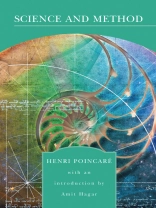‚[T]he untrammeled reflections of a broad and cultivated mind upon the procedure and the postulates of scientific discovery.‘ – Bertrand Russell
Henri Poincarés
Science and Method (1908) was one of the most talked-about books in turn-of-the-century France, and it remains a fine example of the authors philosophical scholarship. Starting from first principles and written in Poincarés unique and inimitable style, the book encompasses a wide variety of methodological topics in science. It also contains Poincarés personal views on much-discussed contemporary issues such as the theory of relativity, the applicability of the calculus of probability in physics, and the foundations of mathematics. Few would disagree that it is the clarity of the exposition that makes Poincarés writing so compelling and impressive, as it conveys even the most complex idea in a down-to-earth and unaffected manner.
Über den Autor
Born in 1854 to a distinguished family whose members included the prime minister and president of France, Jules Henri Poincaré excelled in mathematics from early childhood. The young ‚Monster of Math, ‚ as his schoolteacher used to call him, was soon to become one of the greatest minds in turn-of-the-century France. In philosophy he shall be always considered the godfather of conventionalism and logical positivism, but for the general public he shall remain the scholar who turned his gifts to describing the meaning of science and mathematics to the layman.












